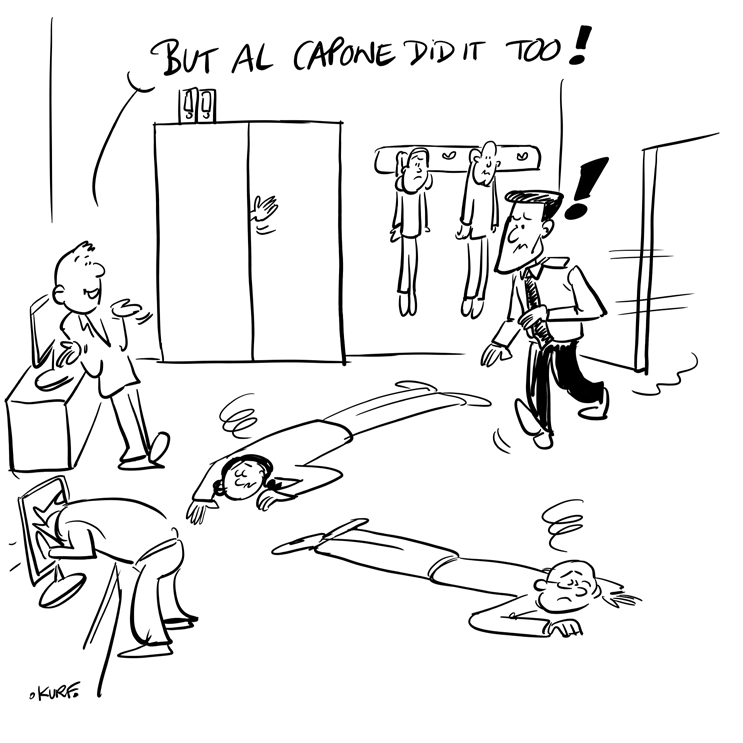
Serious preface
Ethics with a smile
Ethics is a critical reflection on moral values, norms, and behavior. Cartoons can be a powerful tool for this reflection: they can be used to describe and chal enge morality in a visual and humoristic way. In this manner, cartoons function as ethics with a smile.
Ethicisms
This book contains 150 cartoons. Each cartoon refers to a distinctive and fundamental view about ethics in the workplace. I call these ethicisms because they are al nouns that end with the suffix –ism.
Words that end in -ism describe how we think and how we perceive things. Ethicisms relate to the moral theories, doctrines, and ideologies that we follow.
The importance of ethicisms
The ethicisms that we follow are important for what ethics means to us, how we apply ethics, and how we expect others to behave. We cannot understand or change morality without understanding ethicisms.
A catalogue of ethicisms
This book is a catalogue of ethicisms, presented alphabetically. I present a short definition and a typical risk of each ethicism. The risk is reflected in the cartoon. I would like to thank John Körver for, based on my sketches, drawing the cartoons.
Share with others
The purpose of this book is to help one discover, hopefully with a smile, one’s own ethicisms and the risks they bring. You may also share the cartoons with others to address ethical issues in a disarming manner.
Enjoy and happy reflections!
Muel
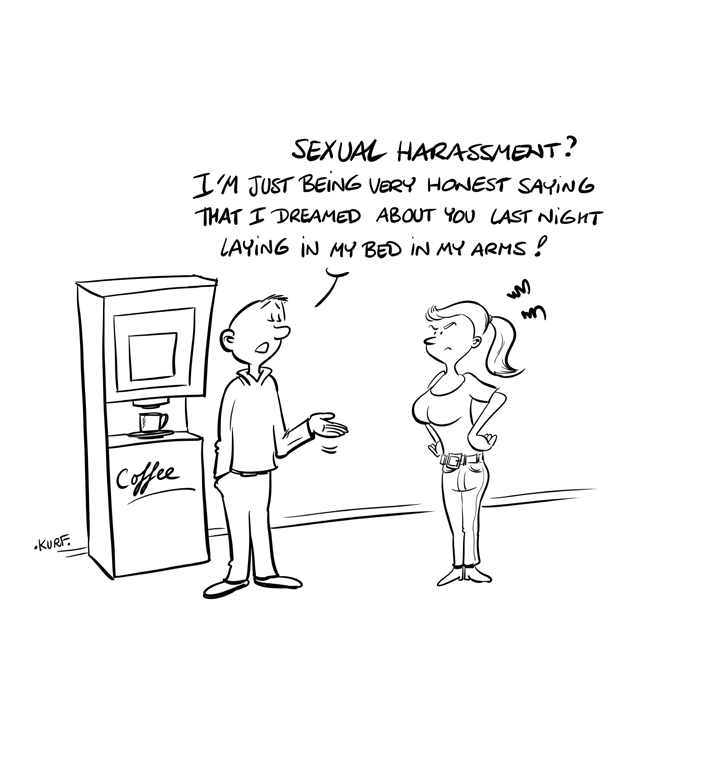
1. Moral absolutism
The view that particular actions
are always either right or wrong.
A risk is that ethical norms are
taken to the point of absurdity
such that other norms are
violated.
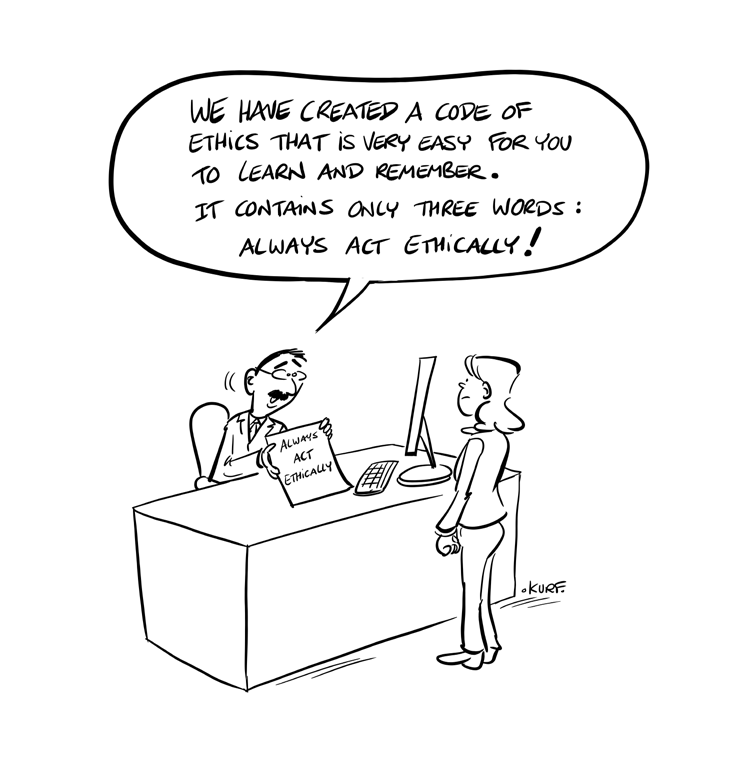
2. Moral abstractionism
(also called idealism)
The view that ethics is about
highly ideal prescriptions that
cannot be actually realized or
operationalized. A risk is that
ethics cannot give practical
guidance.
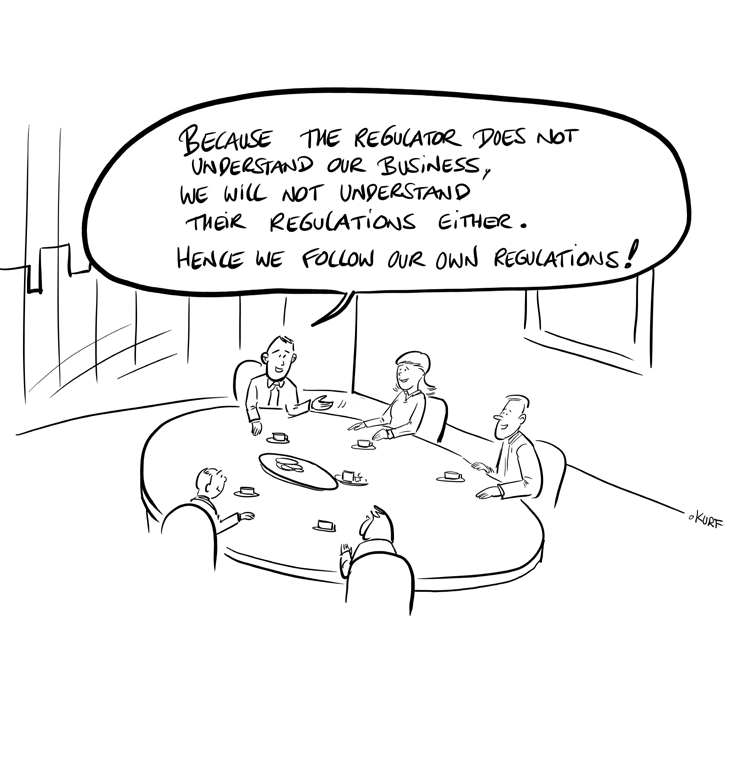
3. Moral absurdism
The view that we live in an
irrational universe where there is
no absolute morality so that
people are free to construct their
own morality. A risk is that this is
used as a reason to behave
irrationally and unethically.

4. Moral accidentalism
The view that some events just
simply do not have any cause.
A risk is the denial of moral
responsibility.
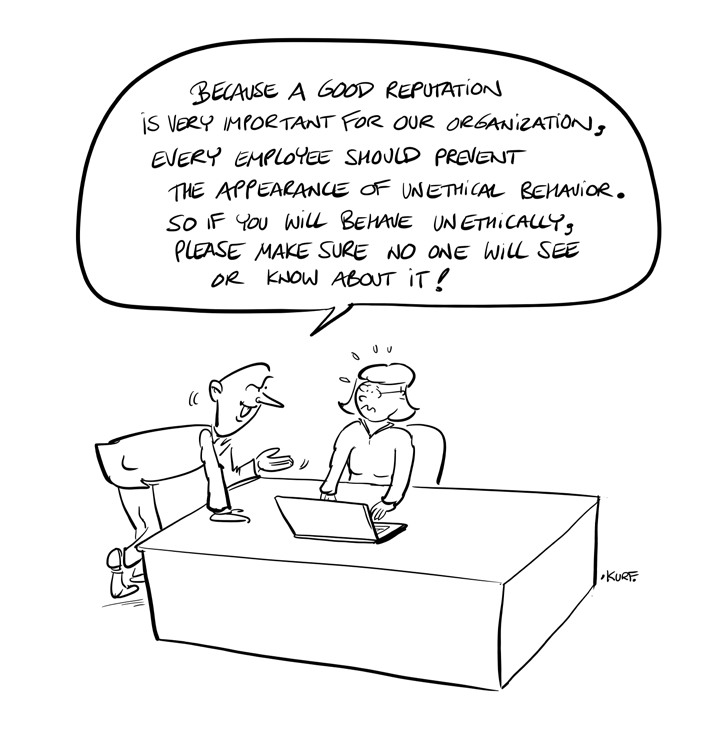
5. Moral aestheticism
The view that to be perceived as
beautiful is the highest moral
value. A risk is that unethical
behavior is permissible as long as
others do not witness or observe
it.
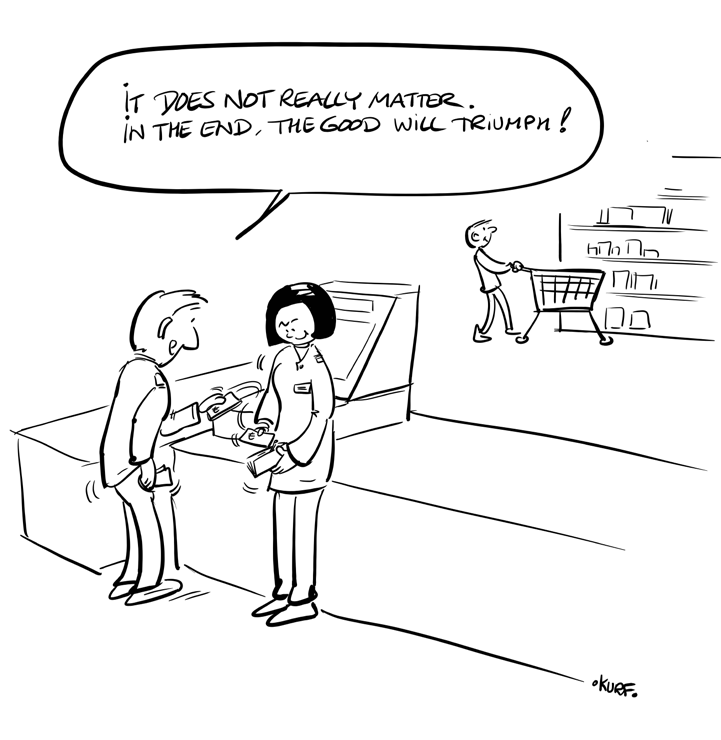
6. Moral agathism
The view that the good will
ultimately triumph even though
morally evil things happen.
A risk is that every evil is tolerated
and accepted.
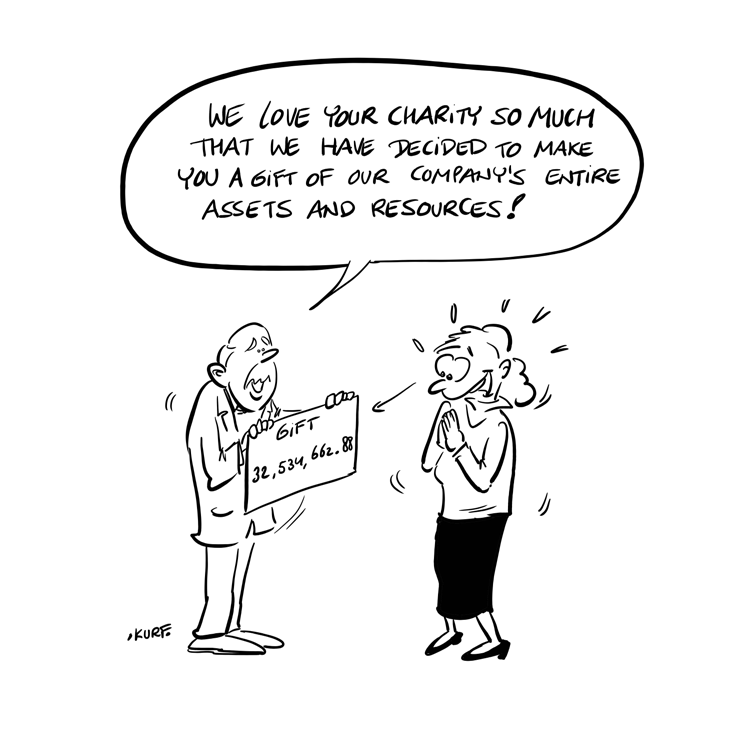
7. Moral altruism
The view that the regard for the
interests of others is the sole
moral value and that concern for
one’s own interests does not
count. A risk is that one’s own
rights are violated.
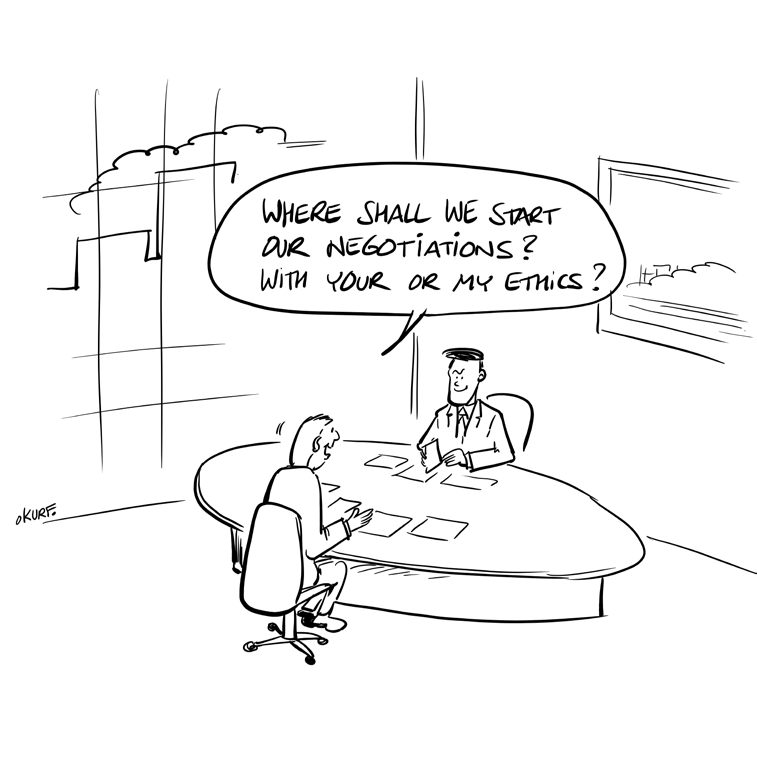
8. Amoralism
The view that ethical norms do
not have a separate objective
reality or basis. A risk is that every
ethical norm can be negotiated
and destroyed (or undermined).
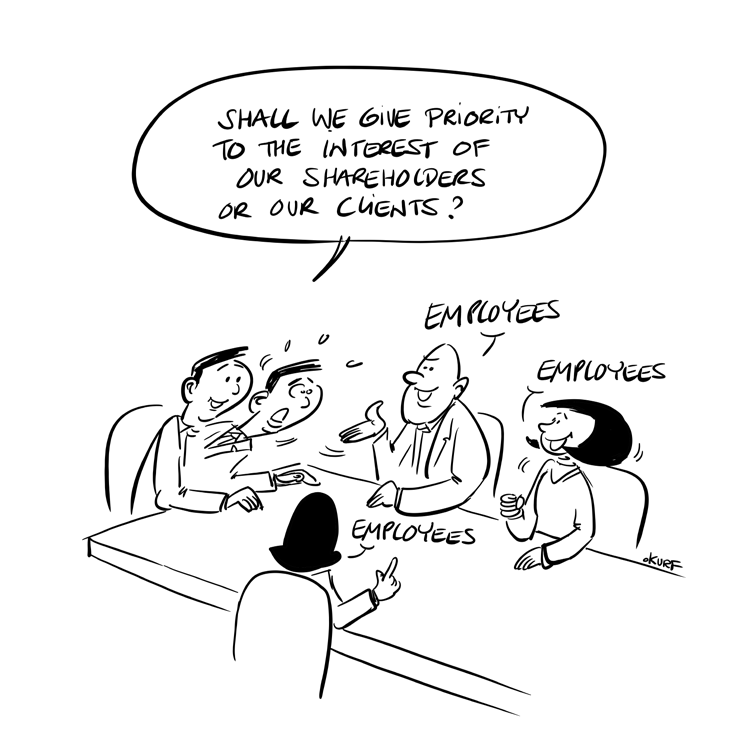
9. Moral anarchism
The view that employees should
determine the ethics of their
organization and not
management, who have no moral
authority. A risk is that employees
will set (or choose or pick out)
norms that are only in their own
interest.
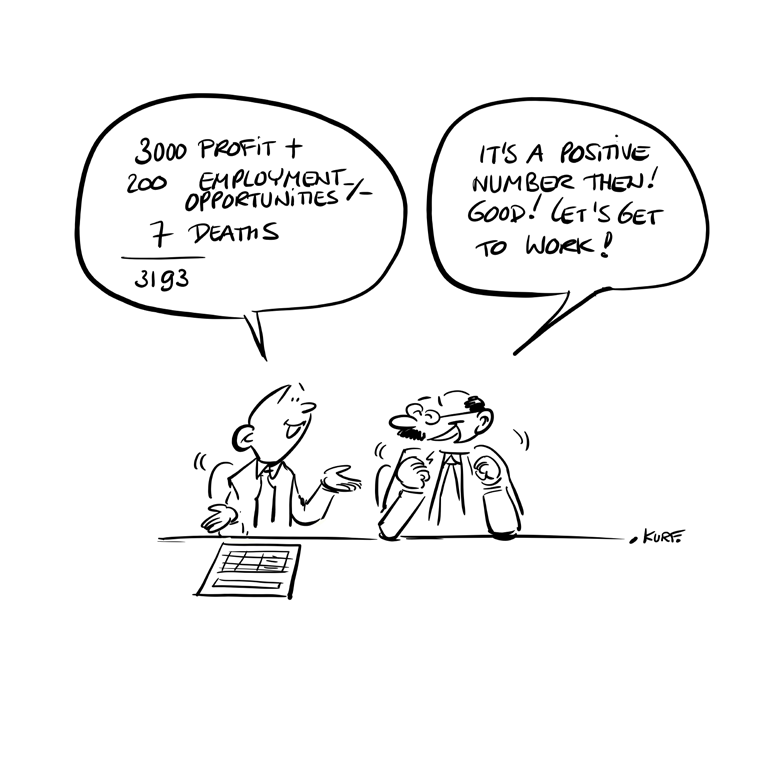
10. Moral arithmeticism
The view that what is morally
good and bad can be calculated.
A risk is that what cannot be
calculated is ignored.
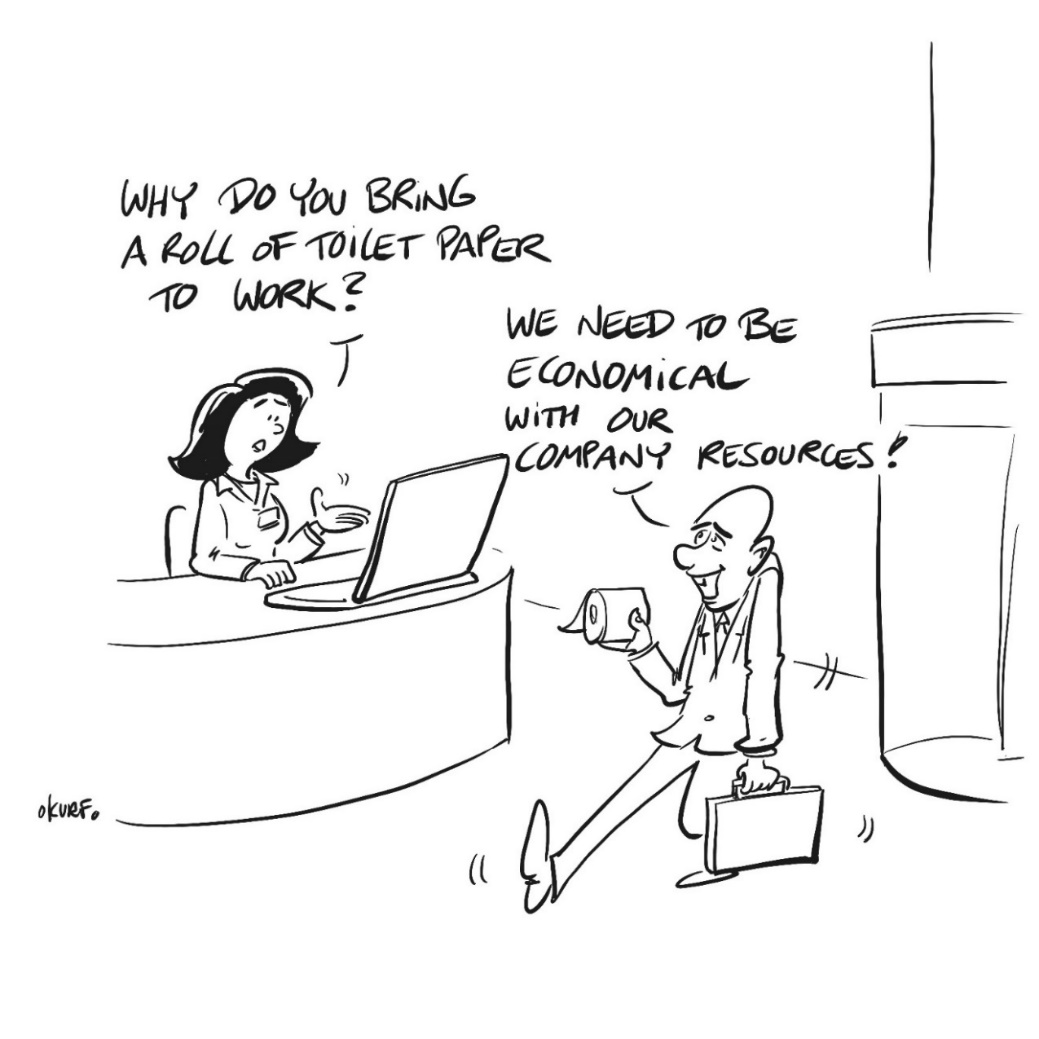
11. Moral asceticism
The view that people and
organizations should live as a
hermit or a monk: pursuing a life
characterized by self-discipline
and self-denial through solitude,
toil, fasting, and frugality. A risk is
that pettiness, narrow-
mindedness, and fastidiousness
might arise.

12. Moral ascriptivism
The view that human beings are
to be held morally responsible for
their behavior even if it is the
result of having been influenced
by someone or something. A risk
is that people are blamed for
things that are beyond their
control.

13. Moral authoritarianism
The view that those who have
authority possess moral
supremacy and the right to
command subordinates without
the latter’s consent. A risk is that
subordinates are ordered to
behave unethically.
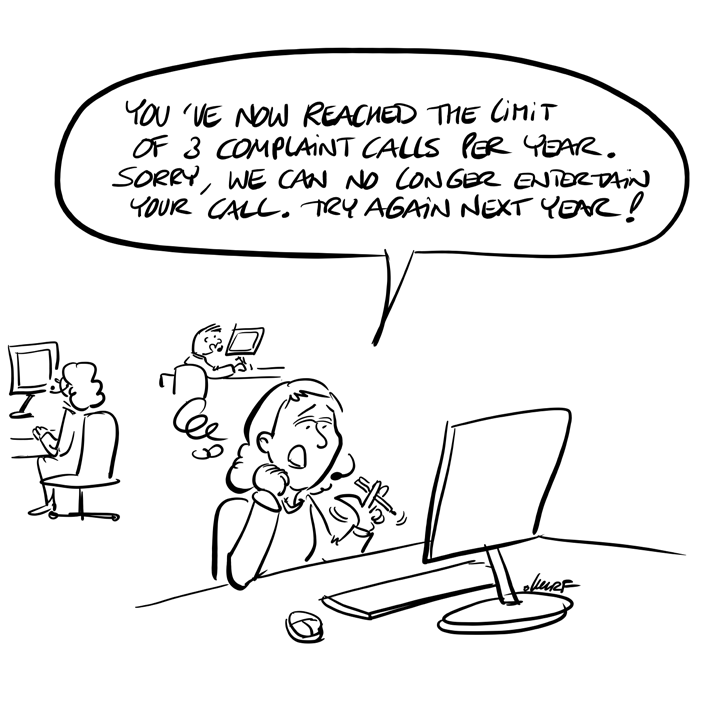
14. Moral autism
The view that one should seclude
oneself from the moral
expectations of others because
these are distracting and
demotivating. A risk is that
important (new) ethical issues and
norms are missed.
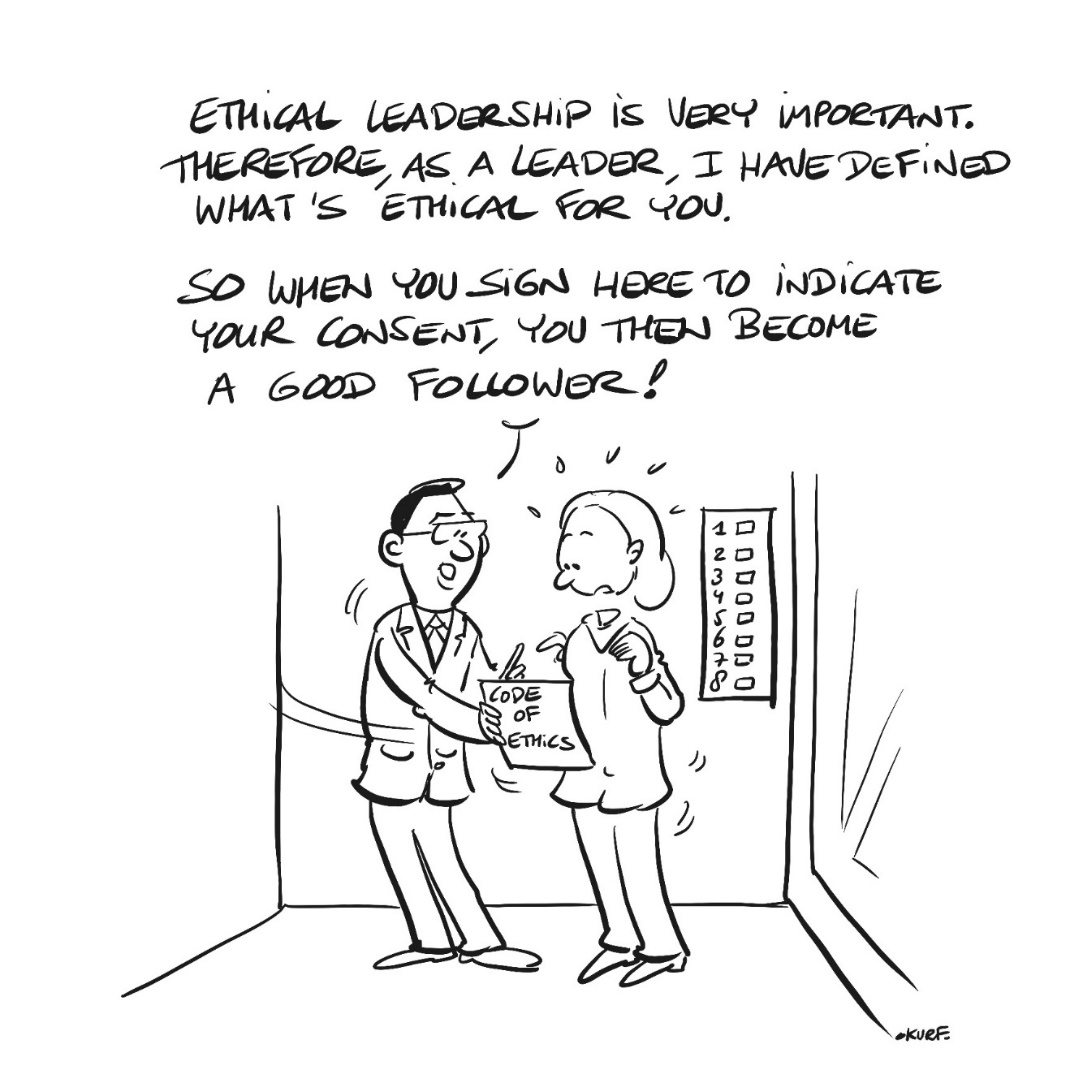
15. Moral autocracism
The view that one person has the
absolute power (i.e., without any
constraints or control) to define
what is ethical. A risk is that the
opinions of others are not taken
into account.
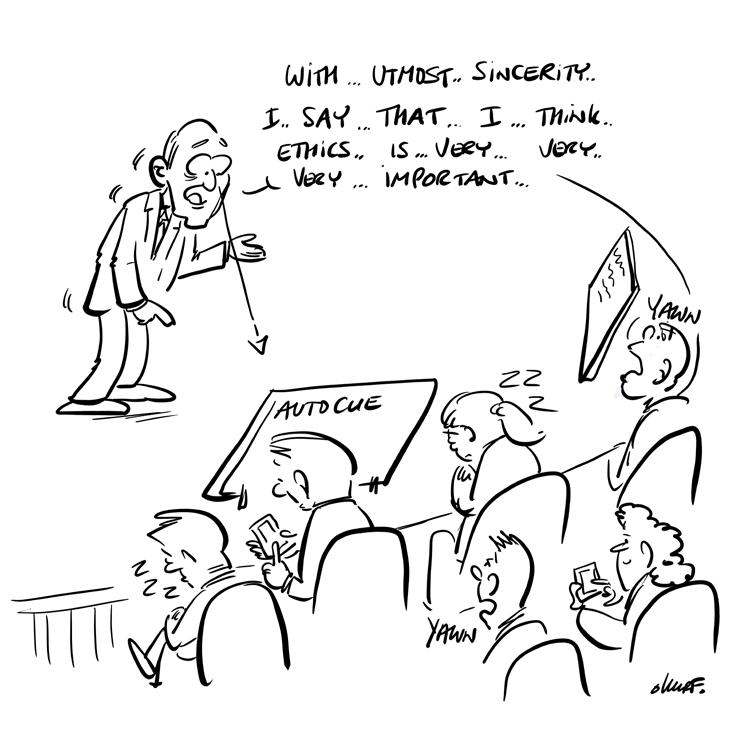
16. Moral autocueism
The view that (as reading from an
autocue) one should do and say
exactly what others have
determined, planned, or laid out
in advance. A risk is a lack of
authenticity.
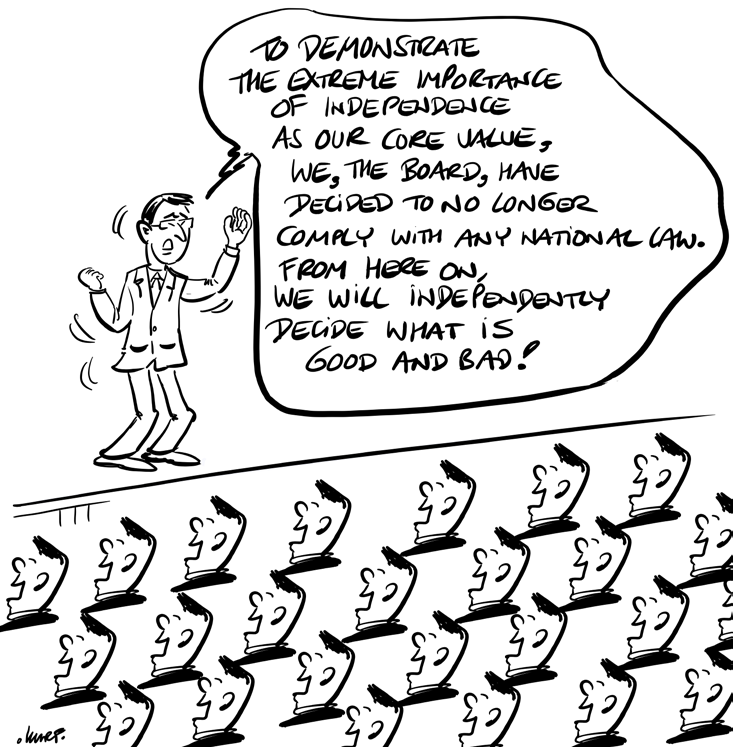
17. Moral autonomism
The view that one should strive
for autonomy to determine what
is right and wrong. A risk is the
neglect of context and society.
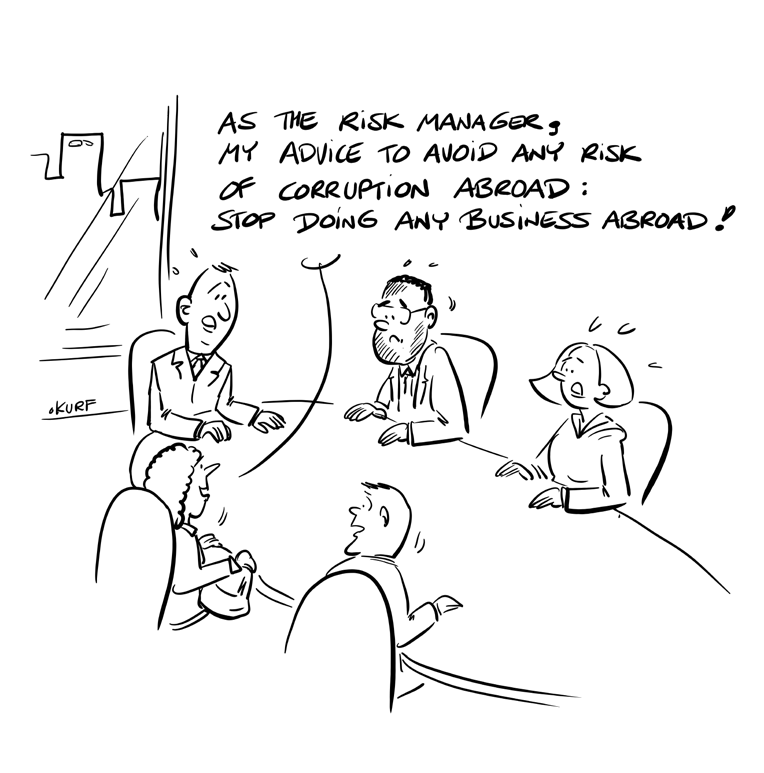
18. Moral bacteriophobiaism
The view that to keep intact one’s
own integrity one should not take
any risks that may compromise it.
A risk is passivity.
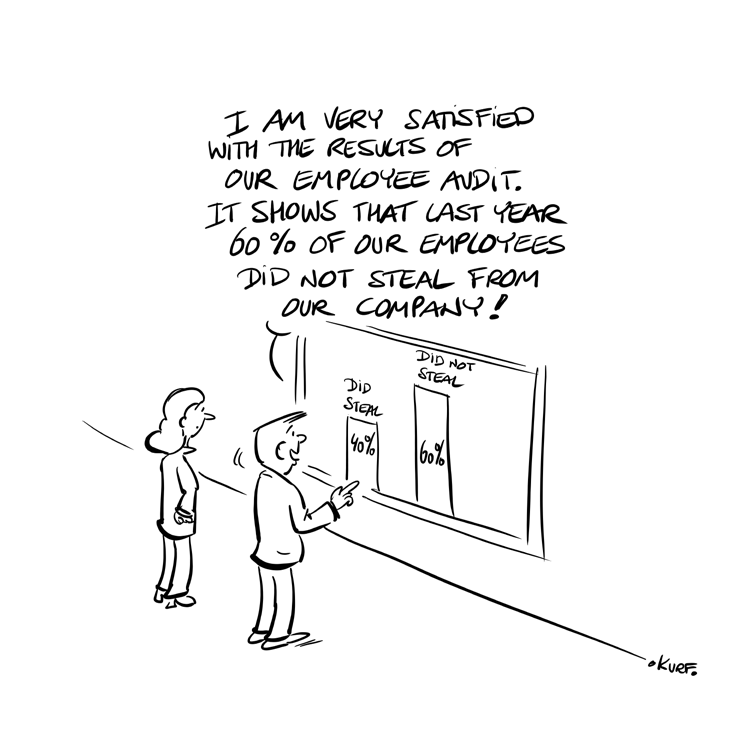
19. Moral bonism (also optimism) The view that the world and
human beings are generally or
fundamentally good but not
perfect. A risk is that evil is
ignored.

20. Moral bureaucratism
The view that ethical behavior is
produced by an administrative
system of rules and procedures
devised by some remote person
behind a desk. A risk is the
undermining of self-regulation.
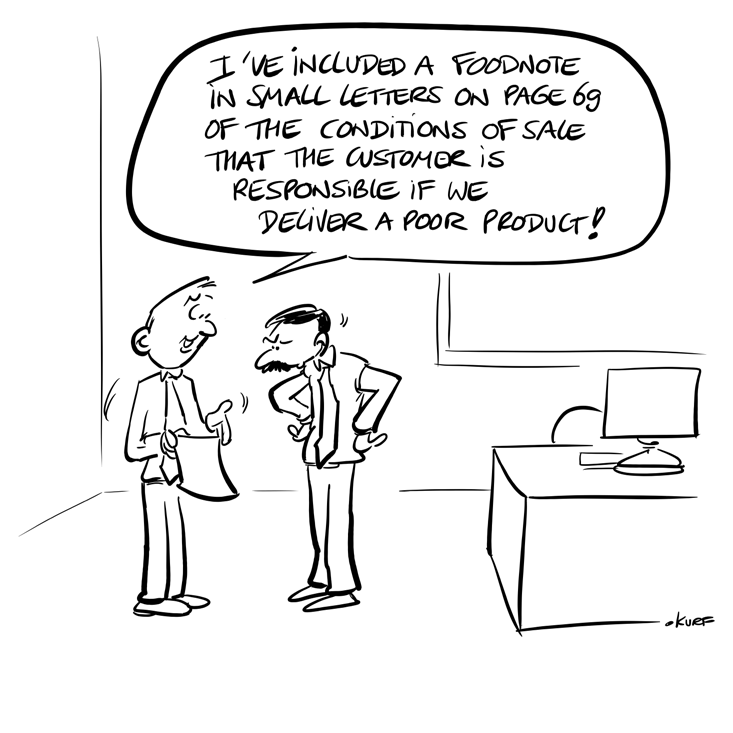
21. Moral caveat emptorism
The view that buyers (= emptor)
and other stakeholders should be
aware of the information
asymmetry between them and the
organization and that they should
bear their responsibility.
A risk is that the organization
uses this as a justification for its
own unethical behavior.
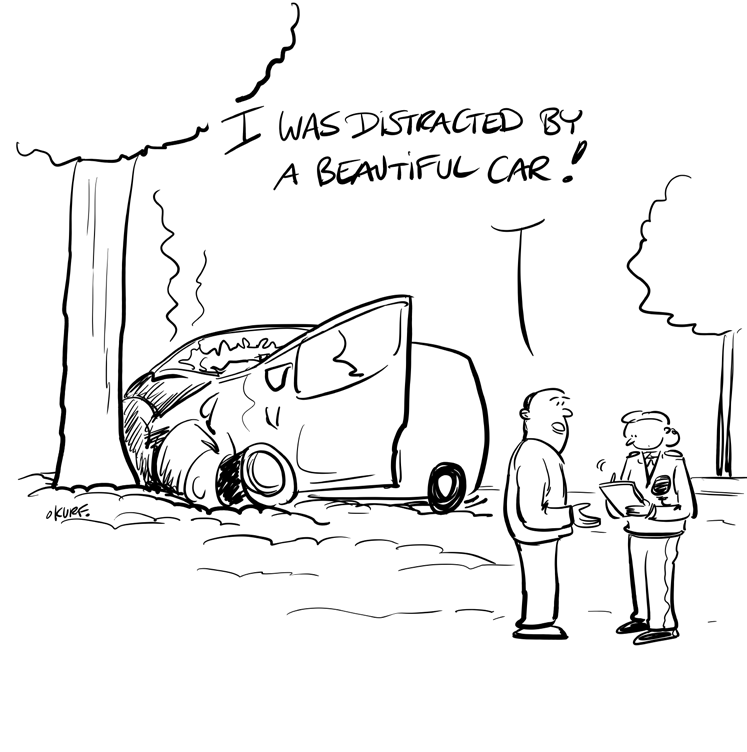
22. Moral circumstancism
The view that circumstances
should be perfect for one to be
able to take responsibility for
one’s behavior. A risk is there will
always be an excuse for why one
cannot be responsible.
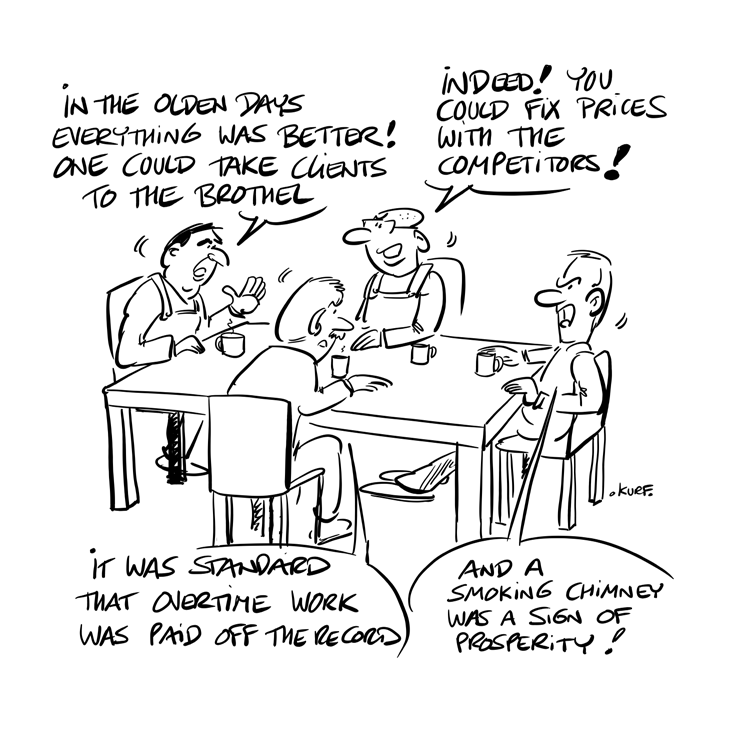
23. Moral classicism
The view that ethical norms were
better in the bygone days.
A risk is the ignorance of
changing circumstances that
require new norms.
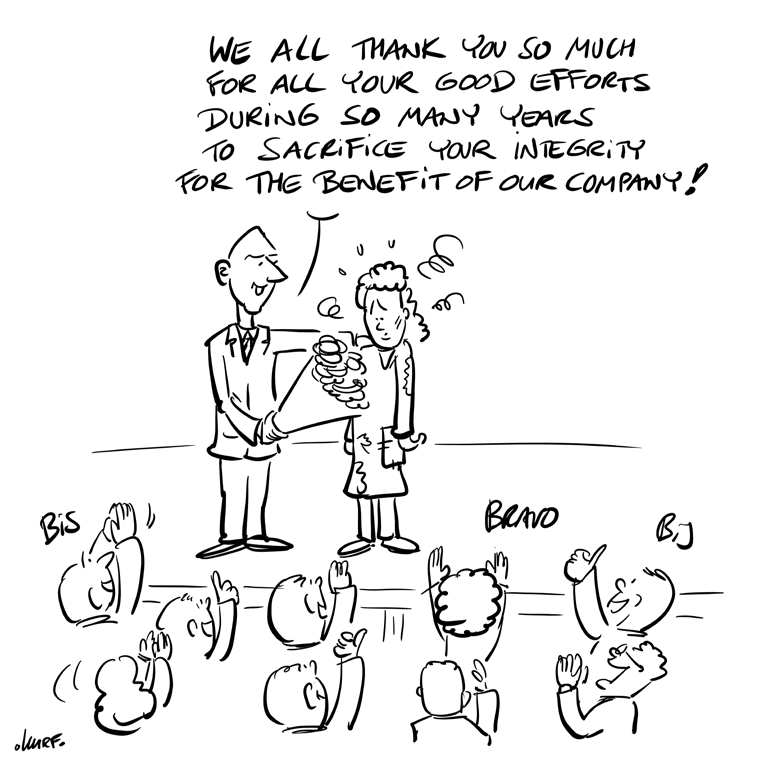
24. Moral collectivism
The view that an individual's
moral beliefs and actions should
benefit the collective (such as the
company, profession, or
community). A risk is that the
individual’s interests and integrity
are neglected.
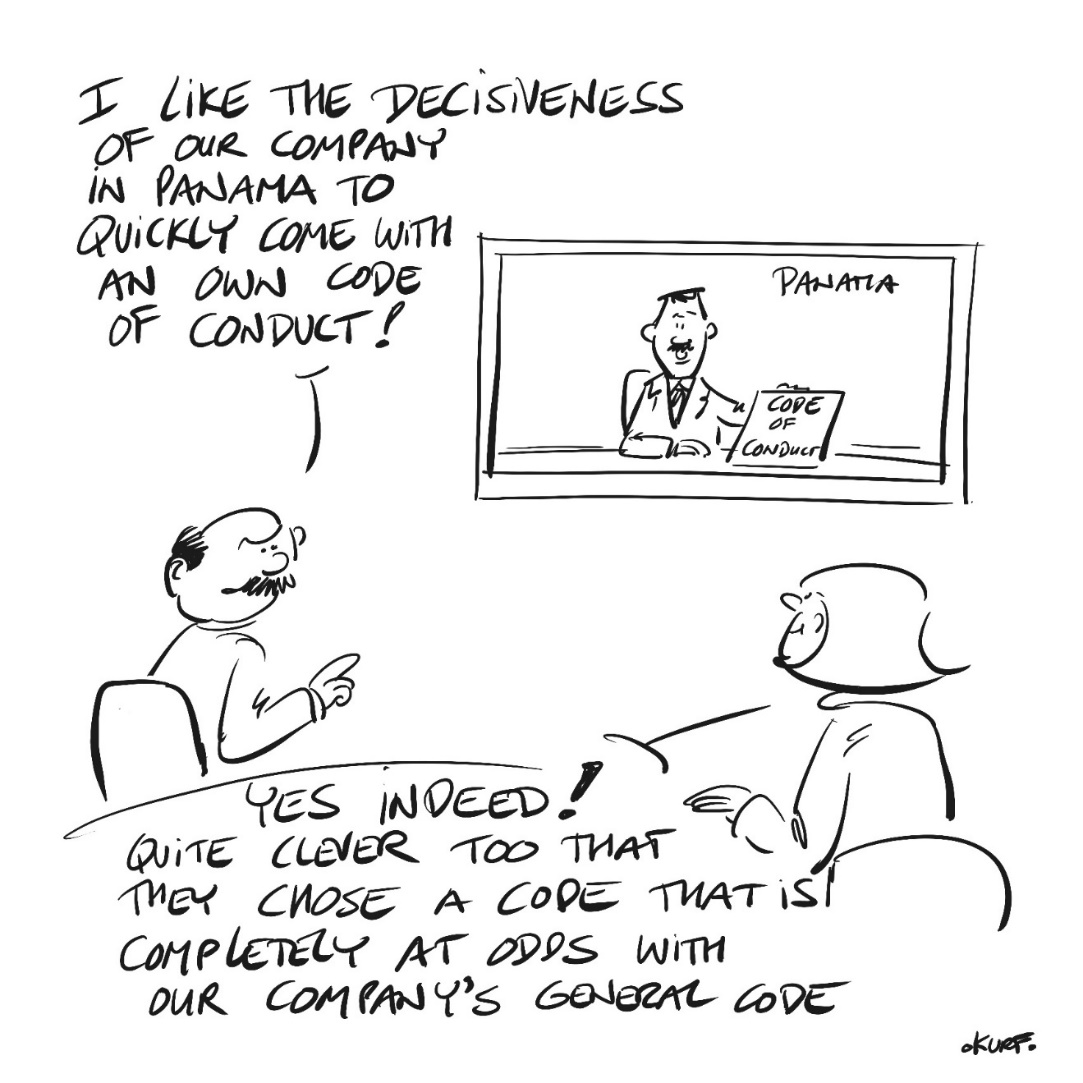
25. Moral communalism
(also sovereignism)
The view that each unit of an
organization should autonomously
and independently decide what is
moral for them. A risk is that the
morality of the organization
becomes inconsistent.
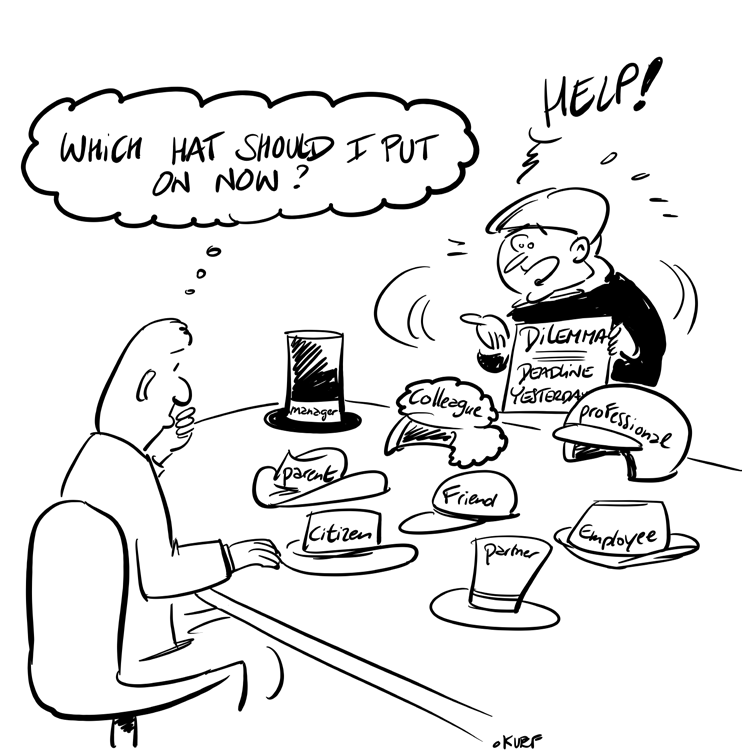
26. Moral compartimentalism
The view that a person or
organization may have different
and unrelated sets of morality for
different roles and functions.
A risk is becoming disintegrated
and limited, with no
comprehensive morality.
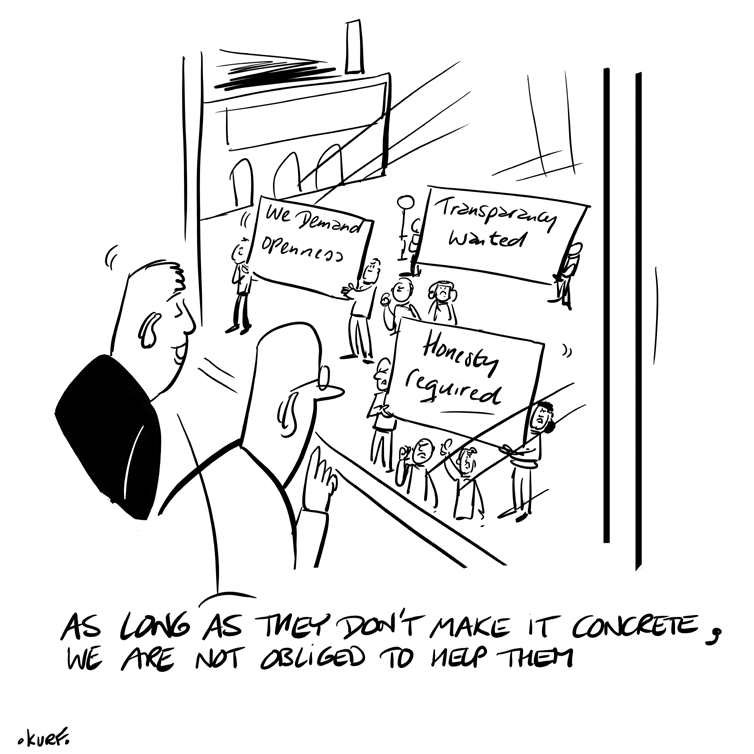
27. Moral concretism (also
hypostatizationism,
reificationism, and reism)
The view that morality should be
represented through concrete
things. A risk is that norms that
are not made concrete are
neglected.
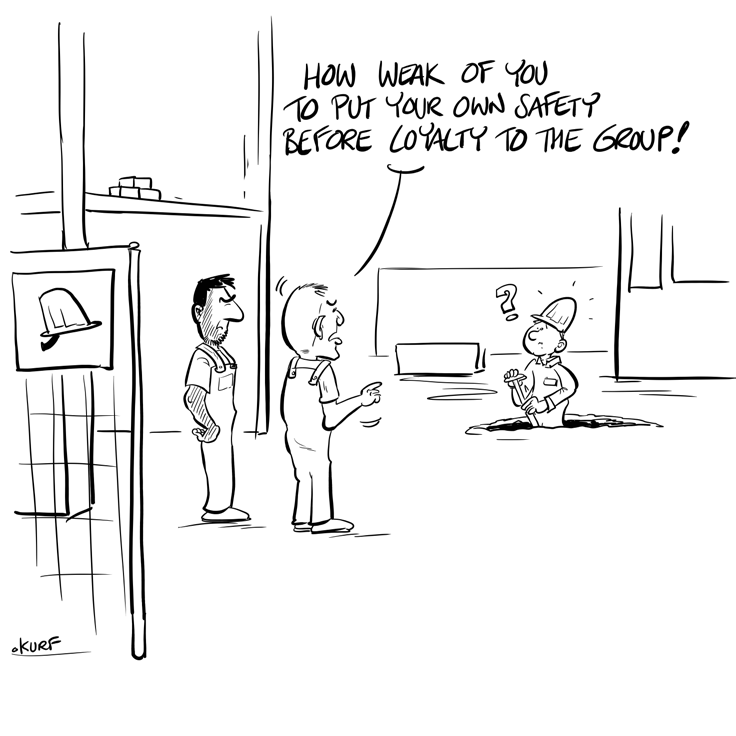
28. Moral conformism
(also tribalism)
The view that one should adopt
the morality of the group to which
one belongs. A risk is one’s
morality is sacrificed.
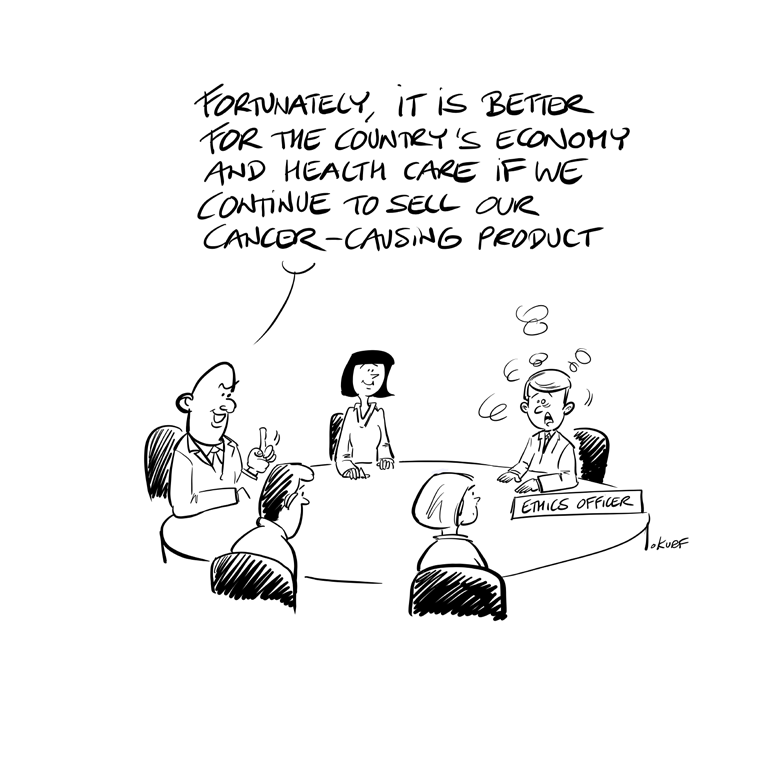
29. Moral consequentialism
The view that only the
consequences and results of an
action count in determining its
rightness or wrongness.
A risk is that bad intentions and
bad behavior are not taken into
account.
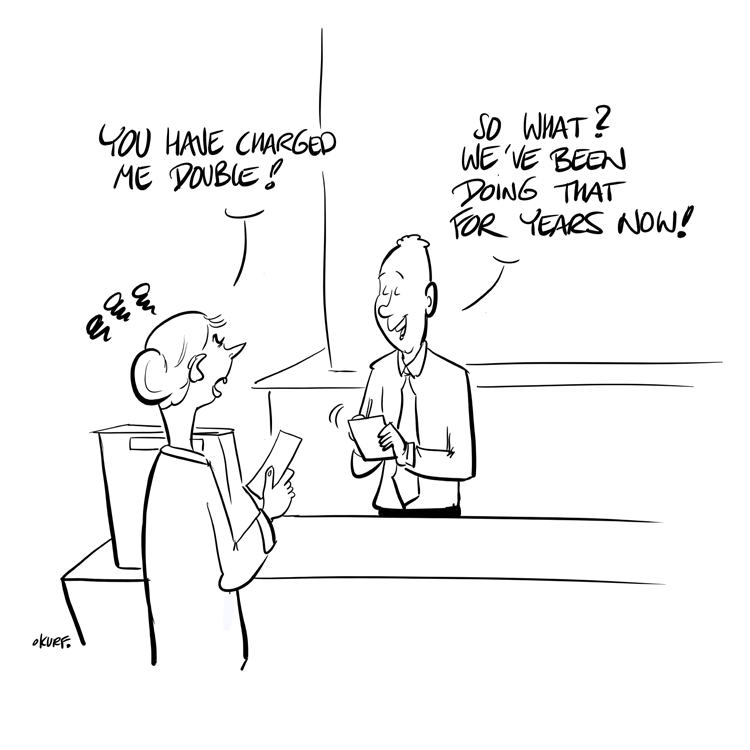
30. Moral conservatism (also
ritualism)
The view in maintaining traditions
that seek to preserve established
moral practices or that resist
change in morality.
A risk is that unethical behavior
remains unchanged.
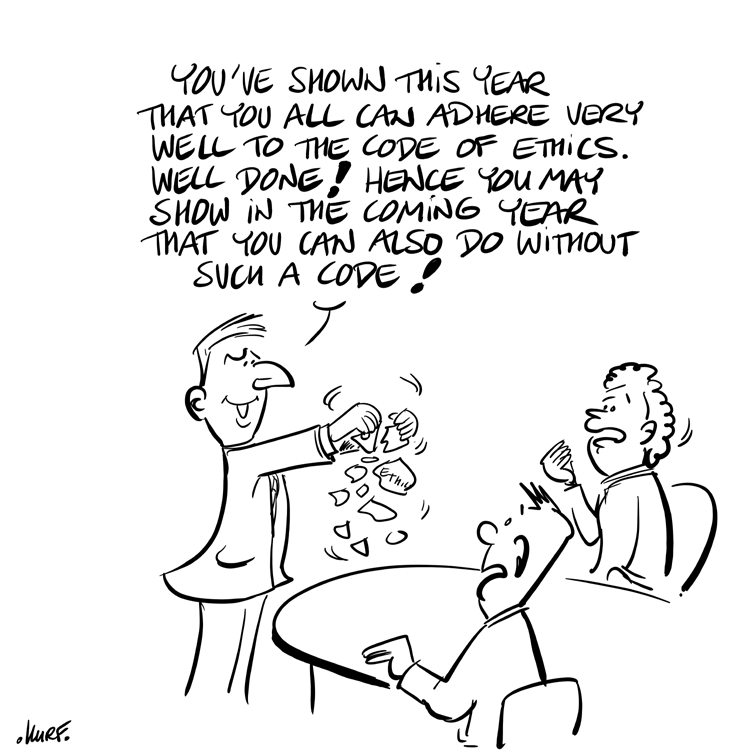
31. Moral constructivism
The view that morality is
constructed rather than received
and has an objective value. A risk
is that morality is destructed.

32. Moral contextualism
The view that ethical norms are
not absolute but are dependent
on the specific context. A risk is
that the context fully determines
what is ethical.
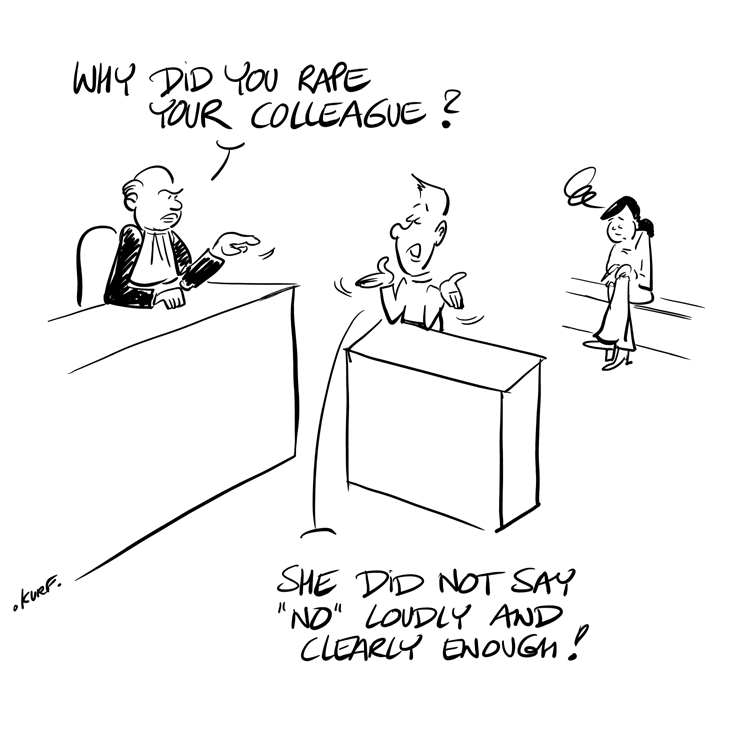
33. Moral contractualism
The view that what is right and
wrong is based on an explicit or
implicit agreement between
people. A risk is that everything
that has not been agreed in
advance is supposed to be
allowed.
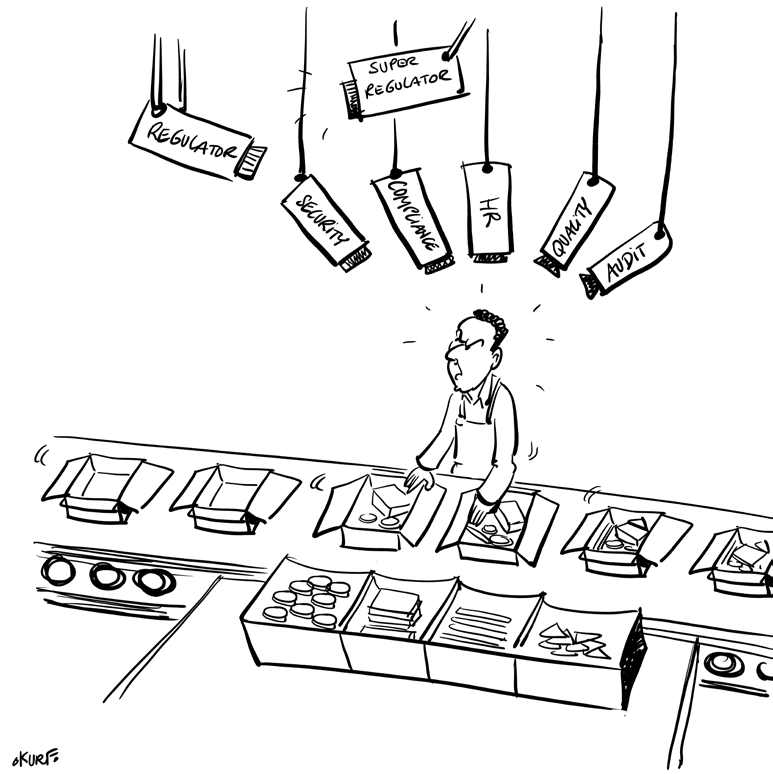
34. Moral controlism
The view that people will only do
the right thing when they are
being controlled through
monitoring, checks, and
inspections. A risk is that people
feel that they are not trusted.

35. Moral conventionalism (also
normalism)
The view that people should
behave in accordance with
accepted moral norms that have
been either arbitrarily or artificially
determined. A risk is that people
follow norms that are not ethical.
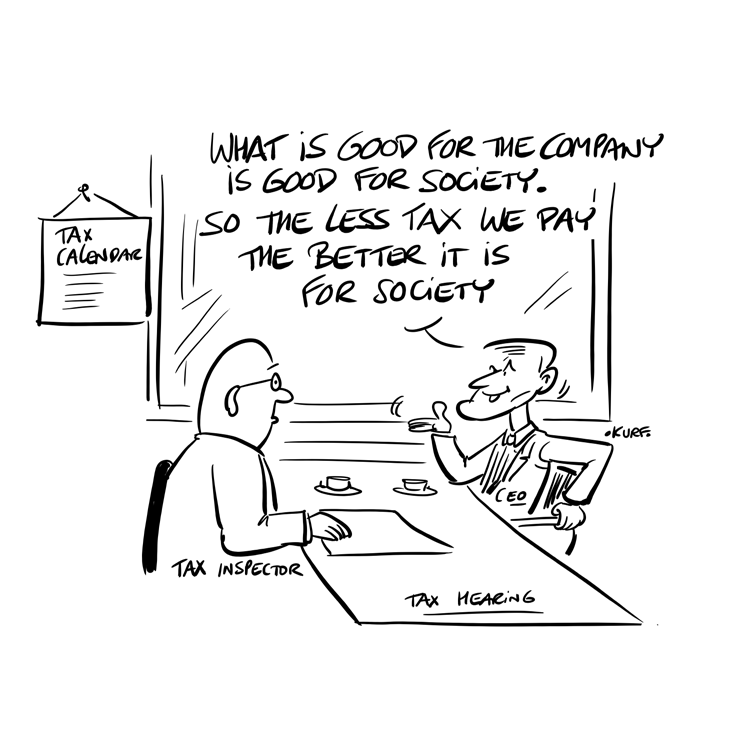
36. Moral corporatism
The view that the interests of a
corporation are most important
and should always be served.
A risk is that other legitimate
interests are violated.
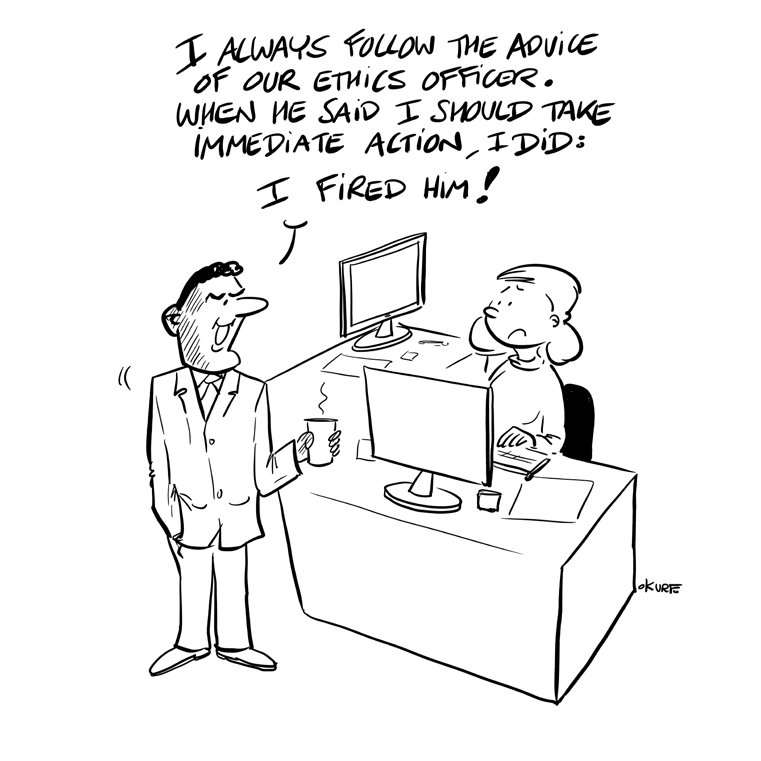
37. Moral creativitism
The view that it is acceptable to
interpret the situation and norms
to one’s own advantage while still
complying with the norms.
A risk is that the spirit of the norm
is violated.

38. Moral cynicism
The view that one has to
approach conventional morality in
a critical way. A risk is that there
is disdain for good moral norms.

39. Moral darwinism
The view that only the best ethics
will survive. A risk is that ethics is
seen as a competition of who has
the better ethics.
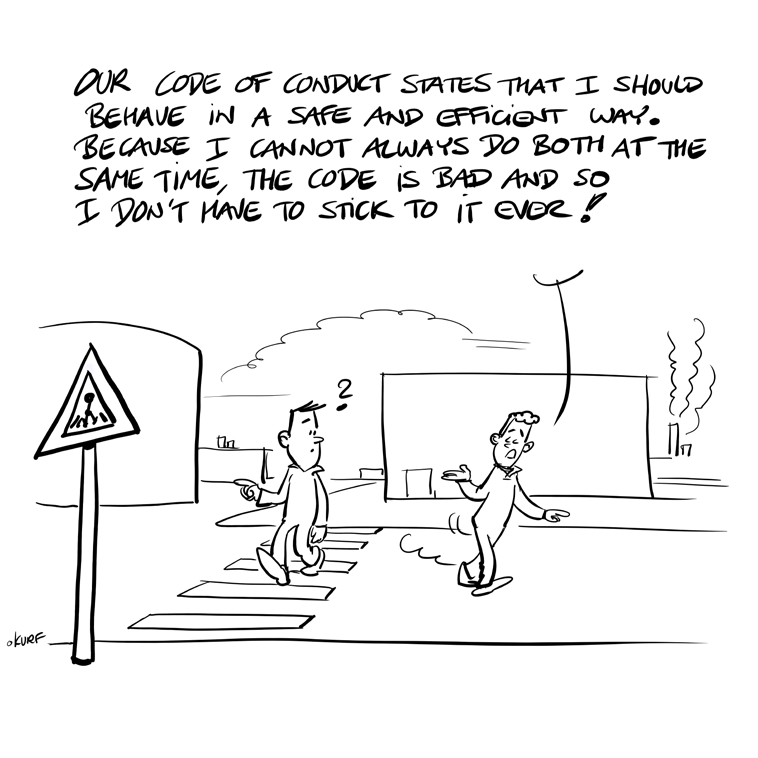
40. Moral deconstructionism
The view that concentrates on
finding ruptures or inconsistencies
among moral norms in order to
break it down (= deconstruct).
A risk is that dilemmas, as the
conflict of norms, are seen as the
failure of ethics and thus a reason
for not behaving ethically.
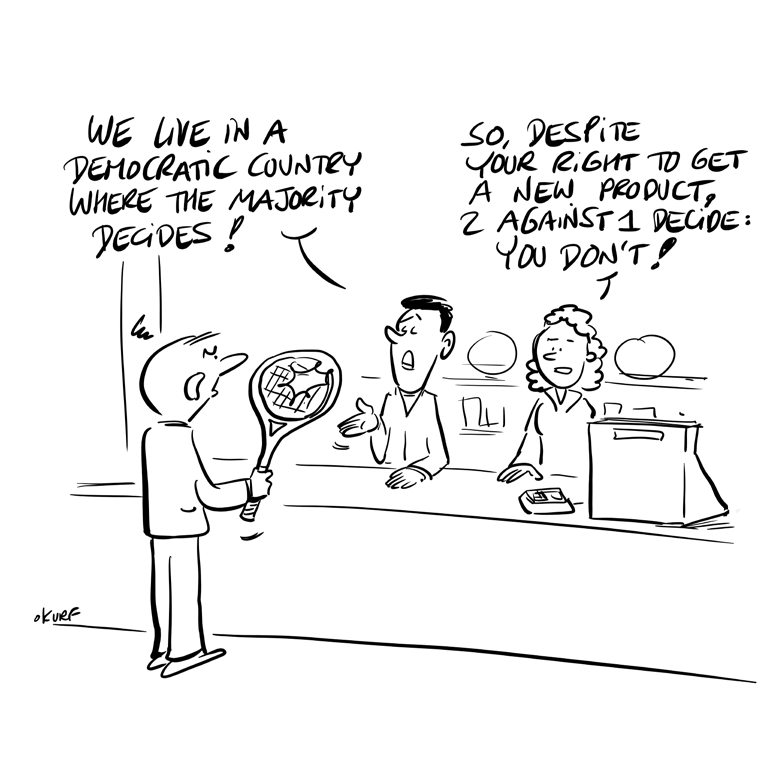
41. Moral democratism
The view that the majority defines
what is ethical and unethical.
A risk is that the moral opinions
and interests of the minority are
neglected.
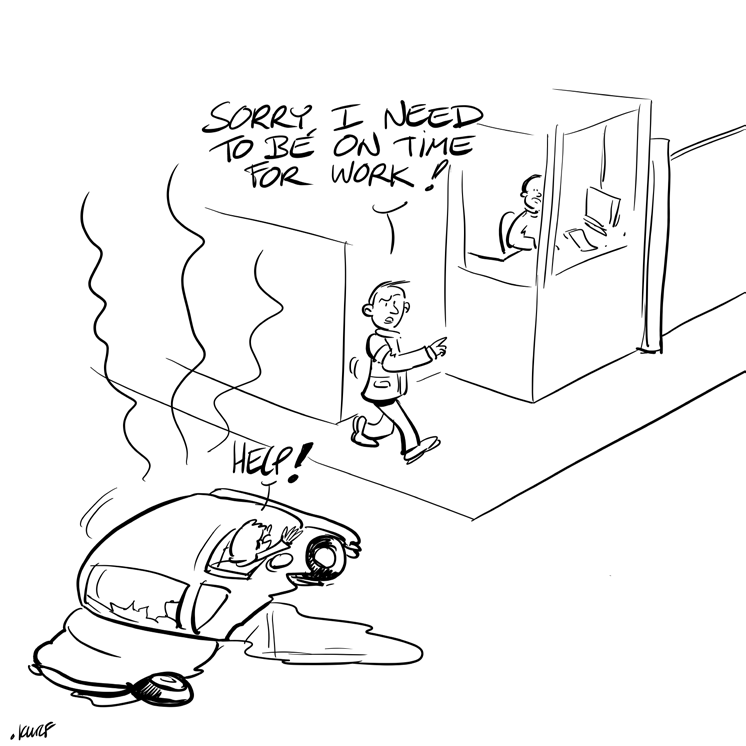
42. Deontologism
(also imperativism)
The view that emphasizes
universal imperatives such as
moral laws, duties, obligations,
and prohibitions. A risk is that no
exemptions are possible even if
the situation calls for it.
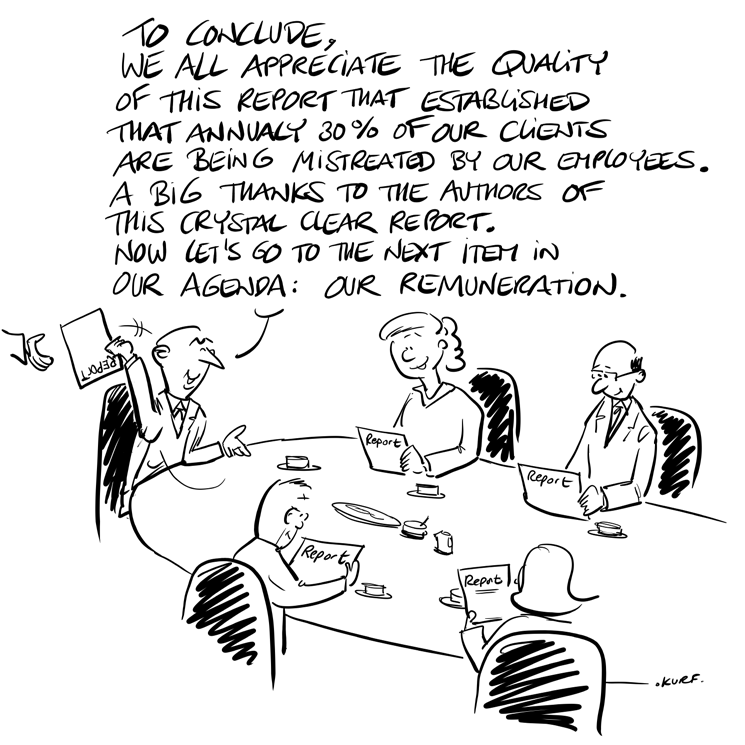
43. Moral descriptivism
The view that ethics merely
represents or describes how
people and organizations act in
real life and that ethics cannot
prescribe normative behavior.
A risk is that ethics does not guide
behavior.
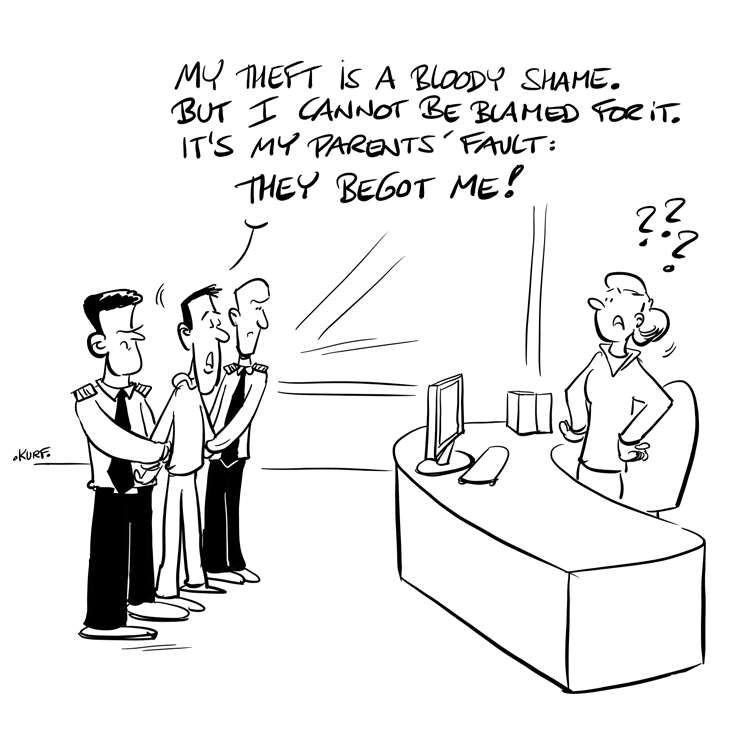
44. Moral determinism (also
necessitarianism)
The view that all human actions
are fixed or pre-ordained by
external forces before they
happen, thereby denying the
existence of free will and human
choice. A risk is that people deny
responsibility for their actions
because they are just a product of
external forces .
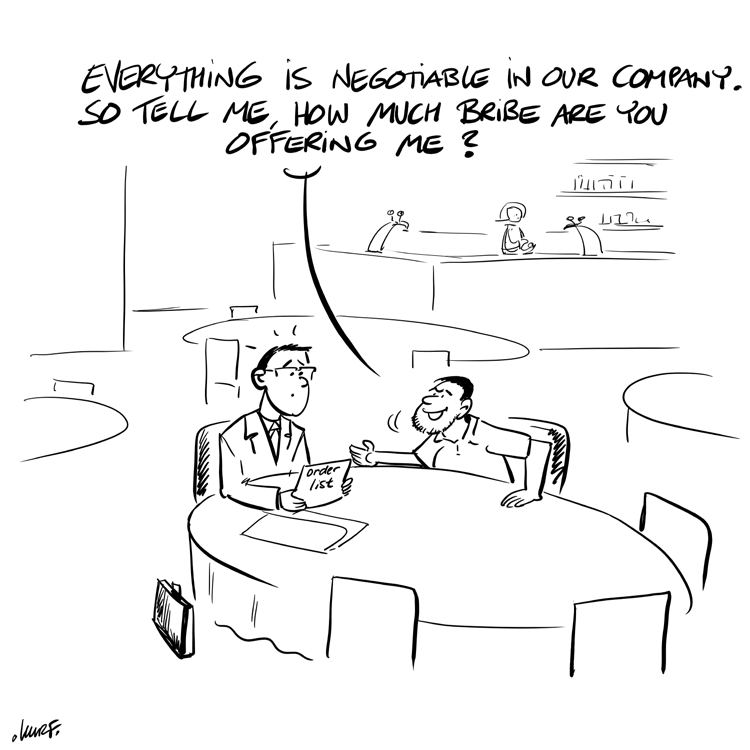
45. Moral discussabilism (also
communicationism and talkism) The view that the basis of ethics
is to discuss things and that as
long as things can be discussed
openly, then they are ethical.
A risk is that the wrong things are
discussed.

46. Moral distancism
(also bufferism)
The view that ethics should not
become too close but kept at
arm’s length because on the one
hand, ethics is useful, but on the
other hand, it is dangerous, risky,
and a threat. A risk is that ethics
has marginal impact.
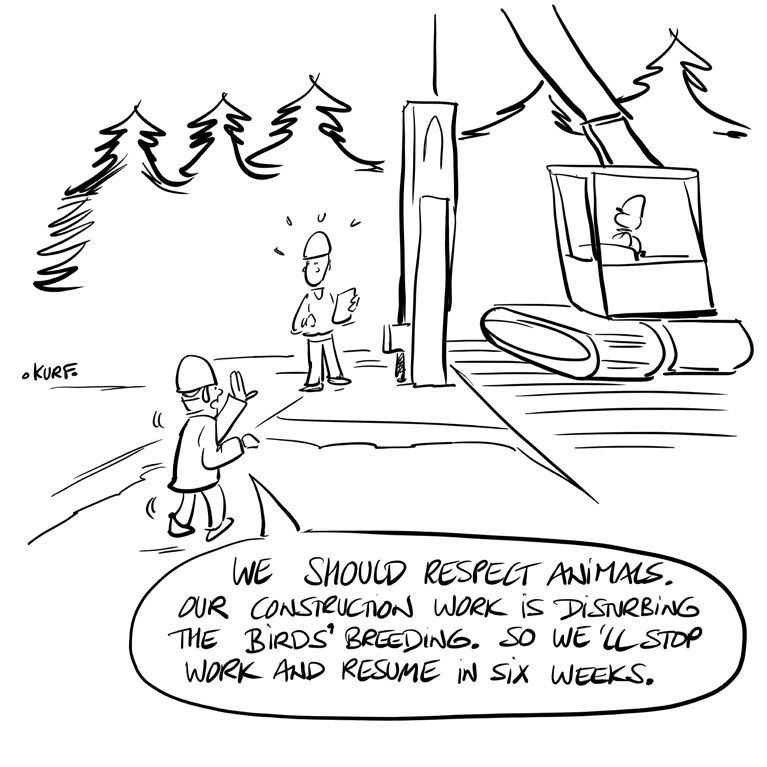
47. Moral dogmatism
The view that emphasizes the
rigid adherence to doctrine over
rational and enlightened inquiry.
A risk is the lack of flexibility and
openness toward other opinions.
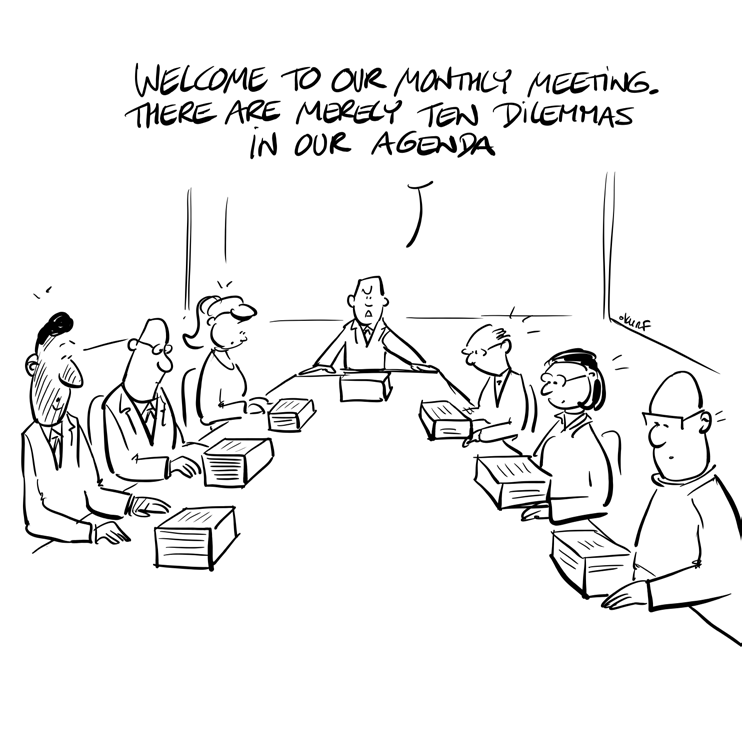
48. Moral dualism
(also dilemmaism)
The view that the universe is
controlled by two opposing forces.
A risk is that everything is seen as
a dilemma.
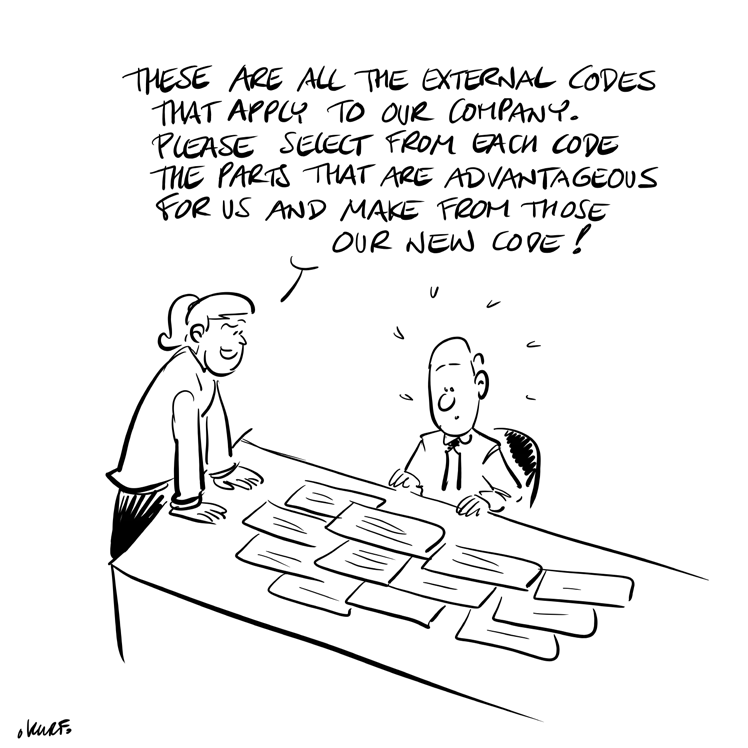
49. Moral eclecticism
The view that does not respect
the boundaries of existing moral
beliefs but instead selects ideas
from each. A risk is arbitrariness
in beliefs and ethical norms.
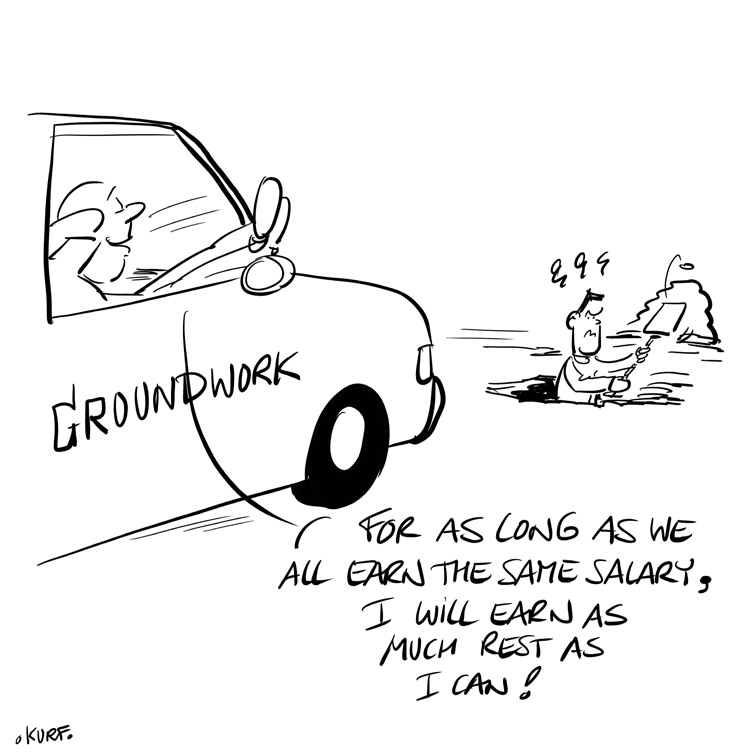
50. Moral egalitarianism
The view that equality for all
humans is the most important
ethical value. A risk is that effort
and output are not stimulated.
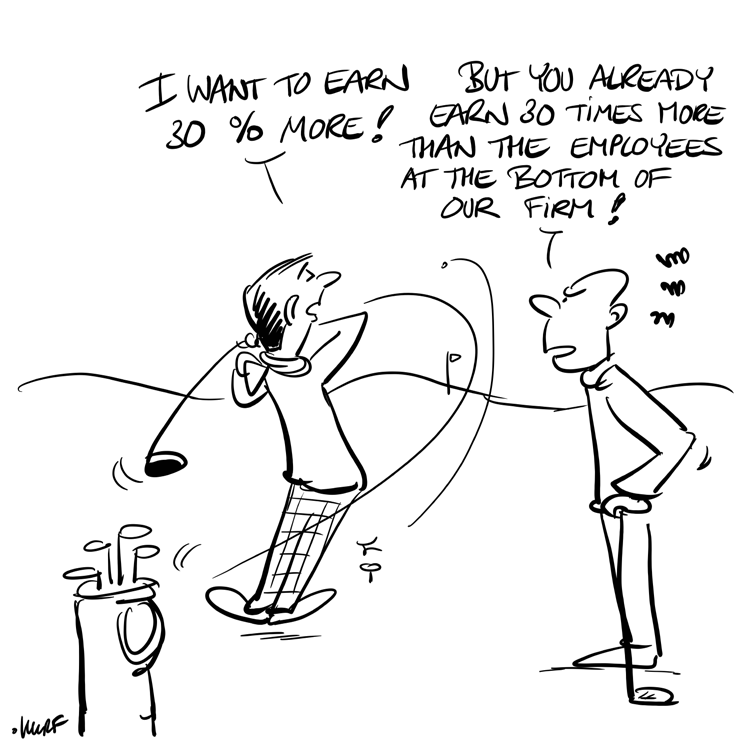
51. Moral egoism (also
egocentrism and egotism)
The view that right and wrong is
determined by the maximization
of self-interest. A risk is the
violation of the interests of others.
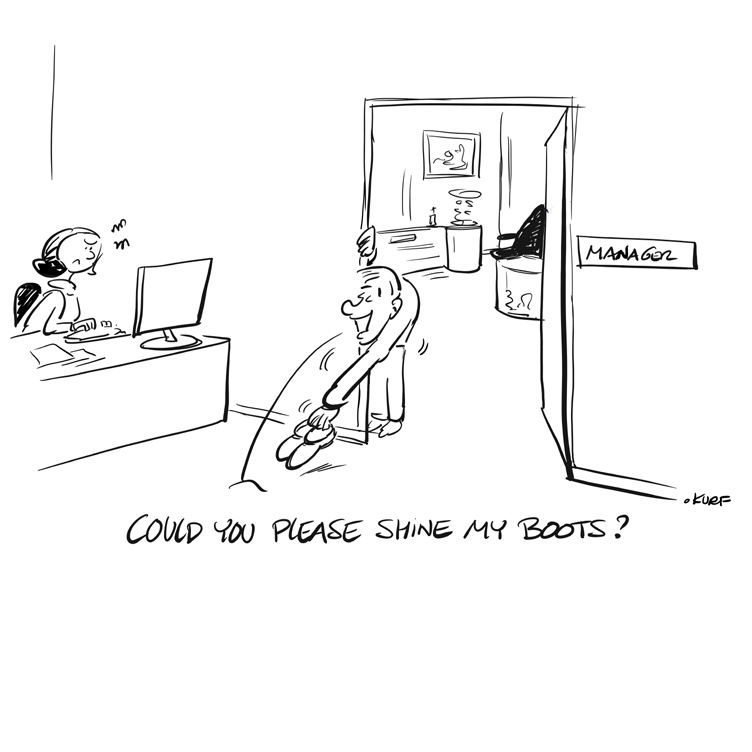
52. Moral elitism
The view that individuals who
form an elite are above morality
and have the right to privileges.
A risk is that elites misuse their
position (and become too big for
their boots).
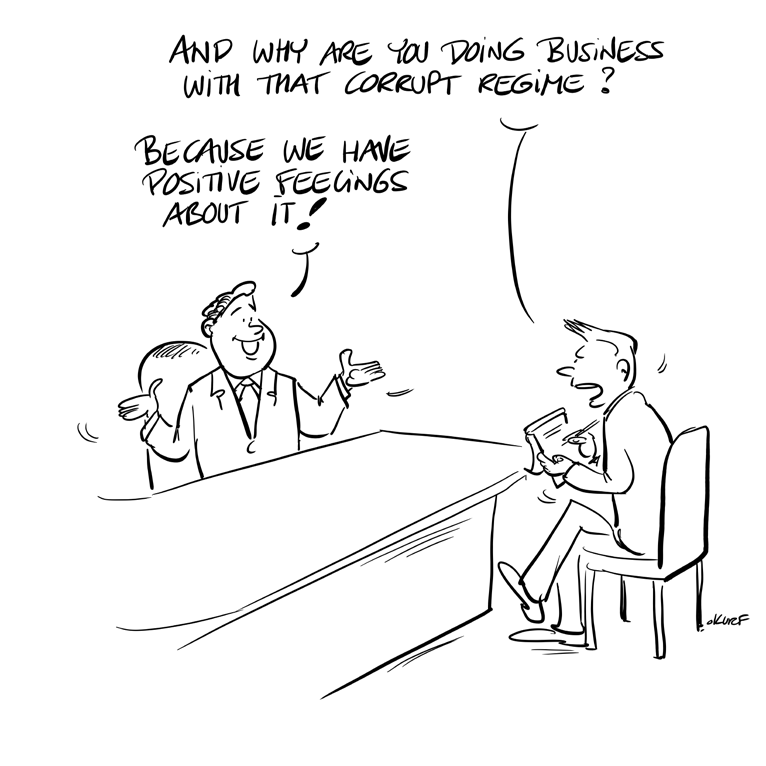
53. Moral emotionalism
The view that determining right
and wrong is based on feeling.
A risk is that reason is ignored.
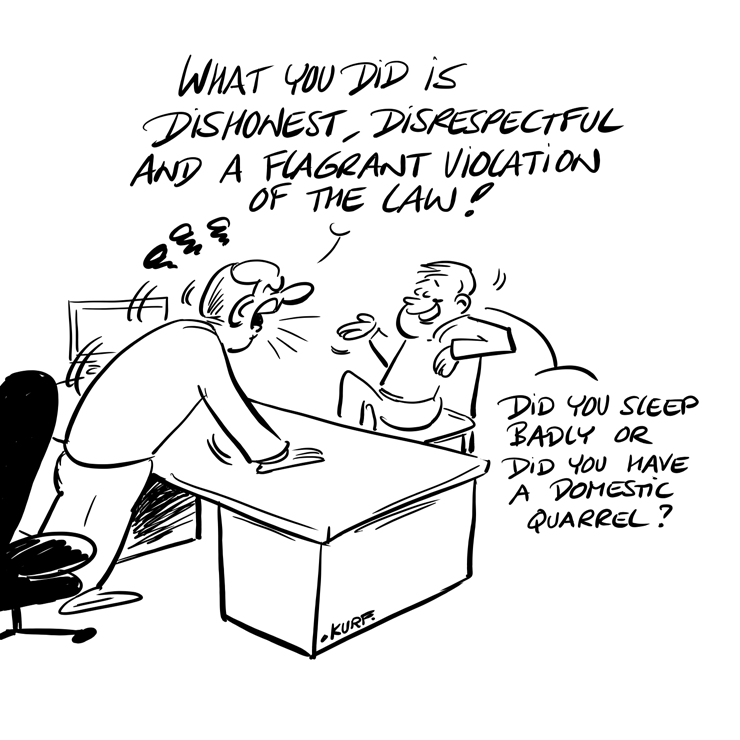
54. Moral emotivism
The view that moral statements
are inherently biased and nothing
more than expressions of
emotions. A risk is that moral
judgements are dismissed as
emotional outbursts.
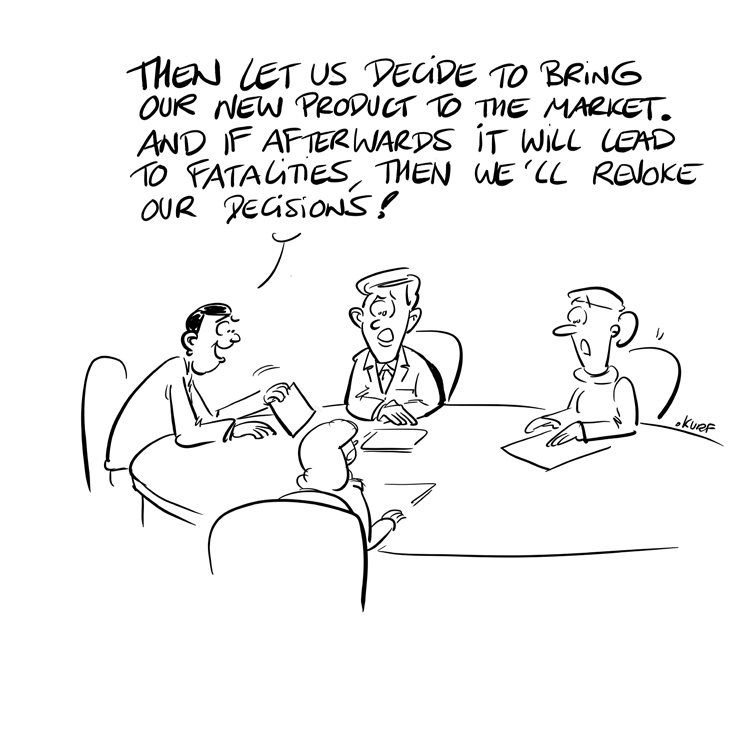
55. Moral empiricism
The view that the experience of
the senses is the most reliable or
even the only source of
knowledge for moral concerns.
A risk is that people ignore
potential moral issues.
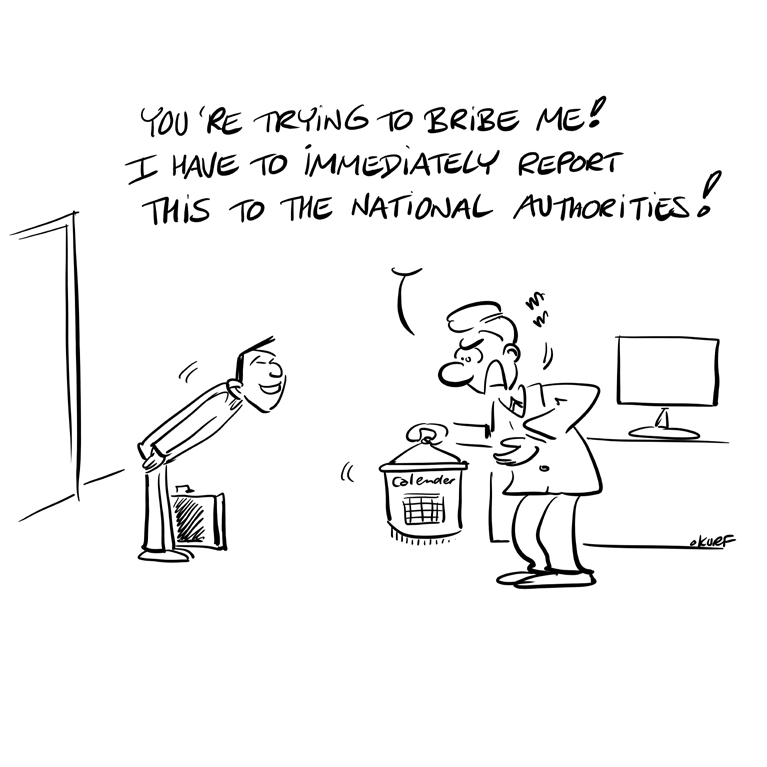
56. Moral ethnocentrism
The view that judging the morality
of another culture should solely
be done on the basis of the
morality of one's own culture.
A risk is the ignorance of the
specific nature of other cultures.
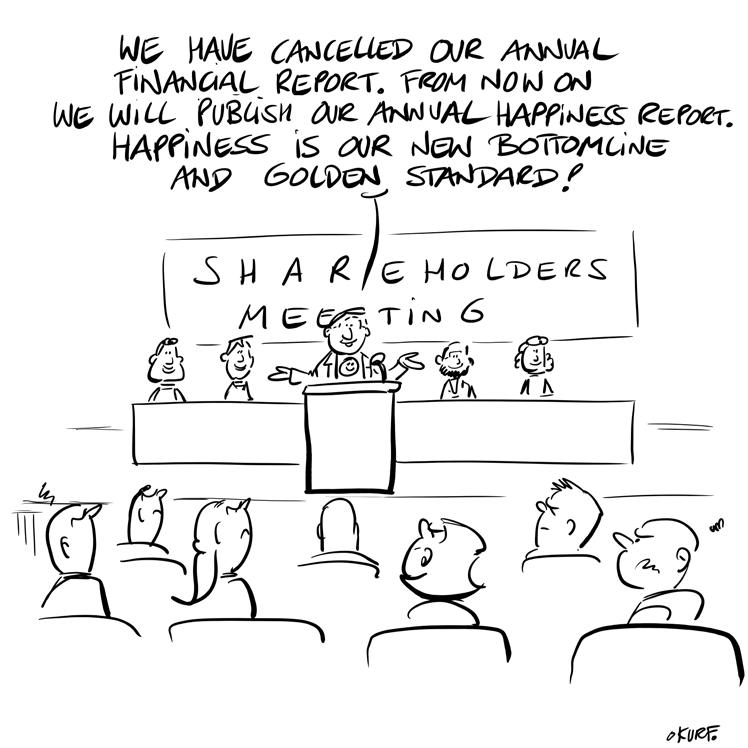
57. Moral eudaimonism
The view that puts personal
happiness at the center of ethical
concerns. A risk is the ignorance
about any other concerns.
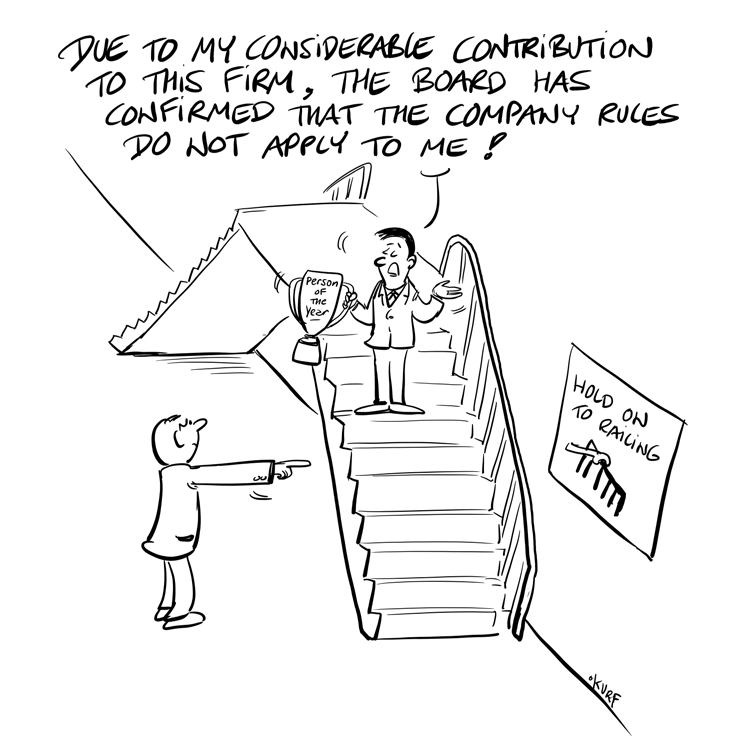
58. Moral exceptionalism (also
antinomianism and grandeurism) The view that moral norms do not
apply to those who are special
and extraordinary. A risk is that
such people think they are
permitted every unethical
behavior.
